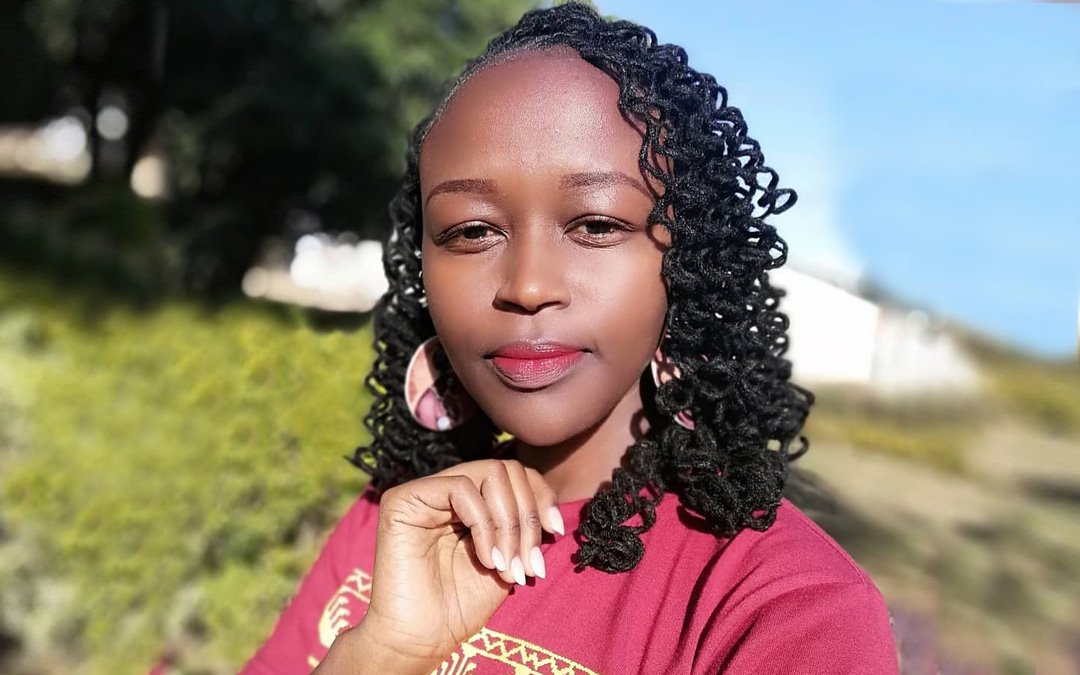It all began in July 2018, when one of my former undergraduate professors sent me a link from his Twitter account about a Graduate Career Workshop organized in one of the leading universities in Kenya. The host was the MTAWA foundation (Mentoring neTwork for African Women in Academia), which is an organization that establishes and builds networks for African women in academia in support of their academic and professional growth and success. They do this by convening groups of African female professionals, scholars, and students, to provide much-needed information, mentoring, and support. I was not a student then, yet I dared to join. During the introduction session, I remember it was odd for me since all the members present were either academic professionals, masters or PhD students. I took that as a challenge to work relentlessly towards achieving my goals and what I wanted in life. I followed up on the mentoring programs and later after the year 2019, I was able to enrol on a master’s program (Biotechnology at Kenyatta University, Kenya). This was parallel with applications for scholarships abroad as it was my dream to pursue my graduate studies in a more diverse environment. With constant application and determination, I secured funding by VLIR OUS for the International Master’s Program (ICP) in Sustainable Development (Ecology Track) << https://www.vliruos.be/en/scholarships >>. Through this opportunity, I have been able to acquire knowledge and skills in the current global change crisis, its impact on ecosystems and insights on sustainable development strategies to curb the challenges. My current research is on the evaluation of the knowledge, attitudes and practices regarding female genital schistosomiasis (FGS), a neglected gynecological disease, among communities in western DR Congo where the disease is highly endemic. The research is part of a wheel working towards preventing snail-borne diseases in selected endemic regions in Africa through the ATRAP project (Action Towards Reducing Aquatic snail-borne Parasitic diseases), coordinated by the Royal Museum for Central Africa.
My future vision is to be become an international research scientist in environmental health and global human wellbeing and be part of the practitioners and policymakers in areas of women empowerment, especially in Africa. Underprivileged communities, especially in the Global South, encounter poverty-related ailments due to various challenges that include a limited knowledge, negative attitudes and beliefs about these diseases, poor sanitation, and limited supply of safe water. I intend to be in the front line to motivate and advocate for individual behavioural change towards the improvement of societal resilience, reduced anthropogenic impacts on the environment that enhance disease re-emergence, for example, creating artificial water bodies that are breeding grounds for disease vectors like snails and mosquitos. I strongly believe that the right attitude and respect for the environment are fundamental for every person for a prosperous and healthy life.
I have discovered the importance of joining a mentorship group, and as the slogan “yes I can” by Barack Obama, taking up challenges is a courageous path and a great deal towards positive growth. I highly recommend and encourage my peers and anyone interested in broadening their perspective, gaining new skills and experience and learning from others to enrol in an academic program that prepares future leaders in sustainability matters <<https://susdev.eu>> and join a mentorship group like MTAWA <<https://mtawainc.org>>.
Cecilia Wangari Wambui,
MTAWA Outstanding Graduate Student Awardee 2021
Wangariwambui2018@gmail.com / wangari.wambui@student.kuleuven.be
Linkedin Wangari Wambui
